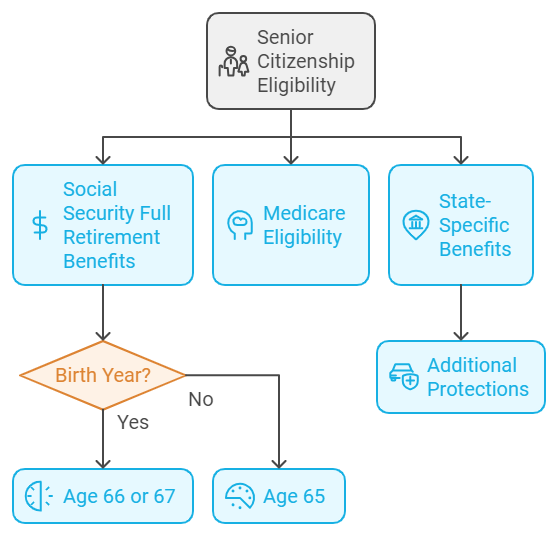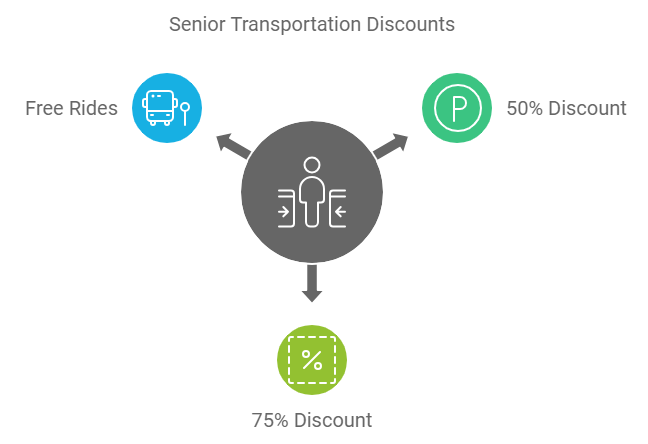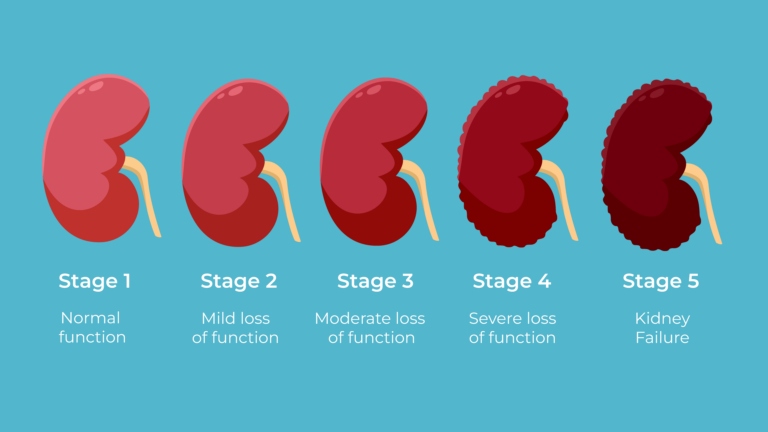In everyday conversation, you might hear someone referred to as a senior, but when does that title officially apply? Is it when you hit a certain birthday? Or is there more to it than just numbers?
Knowing when someone is considered a senior citizen in the U.S. isn’t as straightforward as one might think—different factors come into play, including government policies, healthcare benefits, and even societal perceptions.
Let’s explore how the U.S. defines a senior citizen and what that actually means for benefits, services, and expectations.
What’s the Age Criteria?

In the U.S., the age often cited as the beginning of senior citizenship is 65. This age is significant as it aligns with eligibility for Social Security and Medicare benefits.
Many discounts, senior centers, and specific programs also use age 65 as the threshold. Occasionally, individuals aged 55 or older may be considered seniors in certain contexts, such as retirement communities or specific discount programs.
According to AARP, a major organization for older adults, starts membership eligibility at age 50. This illustrates the variability in age criteria.
When Are Seniors Eligible for Medicare?

Medicare is a federal health insurance program mainly for individuals 65 and older. You qualify for Medicare if:
- You are 65 or older.
- You have received Social Security Disability Insurance (SSDI) for 24 months.
- You have end-stage renal disease (ESRD) or amyotrophic lateral sclerosis (ALS).
Medicare comprises different parts, each covering specific services:
| Medicare Part | Coverage |
|---|---|
| Part A | Hospital insurance |
| Part B | Medical insurance |
| Part C | Medicare Advantage Plans |
| Part D | Prescription drug coverage |
Understanding which parts apply to you and enrolling during the initial enrollment period is crucial to avoid late penalties.
Legal Definitions

Legal definitions of senior citizenship typically hinge on eligibility for federal programs. The Social Security Administration deems individuals eligible for full retirement benefits at different ages, depending on birth year, generally around 66 or 67 for full benefits currently.
Medicare eligibility begins at 65, regardless of full Social Security retirement age. Some states may offer additional protections or benefits at different ages, but federal programs largely set the standard.
Understanding these legal benchmarks is essential for accessing senior-specific benefits and resources.
Social and Cultural Perspectives

Culturally, being considered a senior might be less rigidly tied to a specific age. Many people view senior citizenship as a phase marked by retirement, life experience, and wisdom.
Media and marketing often target those 50 and older with products and services labeled for seniors.
Cultural attitudes about aging and senior status can vary significantly, influenced by factors like family dynamics, ethnicity, and community norms. Recognizing these perspectives helps create a more inclusive understanding of what it means to be a senior citizen in the U.S.
What are Government Benefits for Seniors?
Seniors in the U.S. are eligible for various government benefits that can significantly support their financial and healthcare needs.
Social Security is one of the principal benefits, providing monthly payments to retirees based on their earnings record. Medicare, the federal health insurance program, covers hospital stays, medical visits, and prescriptions for those aged 65 and over.
Additional Government Programs
- Supplemental Security Income (SSI) assists those with limited income and resources.
- Medicaid offers health coverage for low-income seniors.
- Housing Assistance through programs like Section 202, which provides affordable housing for elderly individuals.
Seniors Also Get Private Sector Discounts

The private sector offers a wide array of discounts to seniors, making everyday expenses more manageable. Many retailers provide special senior discount days where you can save a percentage on purchases. Restaurants often offer discounted meals or special menus for seniors.
| Category | Details |
|---|---|
| Grocery Stores | Special discount days for seniors. |
| Travel and Entertainment | Reduced fares for airlines, train services, or movie theaters. |
| Pharmacies | Discounts on prescriptions and health-related products. |
Non-profit Organization Services for Seniors

Non-profit organizations provide essential services to seniors, often at free or reduced costs. Meals on Wheels is a standout, delivering nutritious meals to homebound seniors. Local senior centers often offer social activities and educational programs that promote well-being and community connection.
Key Services from Non-profits
- Transportation Services: Helping seniors get to medical appointments or run errands.
- Health Services: Clinics offering free or low-cost medical care.
- Counseling and Support: Services assisting with mental health and social issues.
Utilizing these benefits and discounts can greatly enhance your quality of life as a senior.
Senior-Specific Healthcare Programs
Besides Medicare, various programs address health issues specific to seniors. These include Programs of All-Inclusive Care for the Elderly (PACE), which provide comprehensive medical and social services.
Community health centers offer primary care services, often on a sliding fee scale. Senior-specific wellness programs, such as SilverSneakers, promote physical activity tailored to older adults, boosting overall health and mobility.
Accessing these programs can greatly enhance your healthcare quality, catering specifically to your needs as a senior citizen.
What About Transportation and Mobility?

Many U.S. cities offer senior discounts on public transportation. People aged 65 and older can enjoy reduced fares on buses, subways, and trains. Discounts typically range from 50% to 75% off regular fares.
Seniors must often apply for a special pass or show proof of age to receive these benefits. The exact age and discount vary by city and transit system. In some areas, free rides are available during off-peak hours, encouraging seniors to travel when it’s less crowded.
Tax Credits for Seniors

According to IRS, you may be eligible for the credit for the elderly or disabled, which is designed for individuals aged 65 and older.
To qualify, your income must fall below specific thresholds depending on your filing status. Additionally, certain medical and dental expenses incurred during the tax year can be itemized and deducted.
Other possible deductions include retirement savings contributions and property tax exemptions available in some states. These can significantly lower your taxable income, providing financial relief.
The Bottom Line
So, when are you officially a senior citizen? It depends. But more importantly, how do you plan to enjoy it when you get there?












